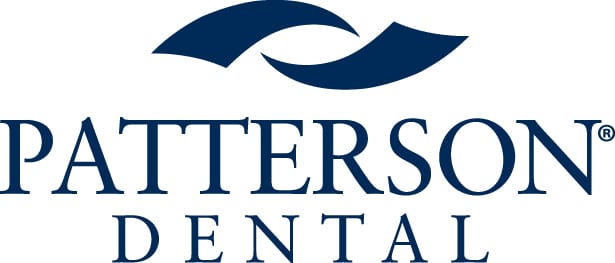So, you’ve just graduated from dental school, now what?
First, of all, congratulations, you have done it; you’ve graduated dental school or maybe you’ve graduated and you have your final clinical boards to pass.
Regardless, you did it, which is a feat in and of itself!
Taking Your Final Clinical Boards
I want to start off just talking about clinical boards.
I graduated in 2020; an interesting time in the world and a stressful time for people graduating from dental school.
I won’t get into my feelings and opinions on using live patients as testing dummies for clinical exams, but I do want to touch base on my experience taking boards.
I took CDCA ADEX and at USC, we don’t take clinical boards for ADEX until after graduation so I was out of luck when COVID happened for many reasons.
My point isn’t to dive into any of that, my point is to briefly share my experiences. I failed the anterior endo portion of my ADEX
I was top of my class, had so much clinical experience, and had passed all my Part I boards, Part II boards, and the DSE all on the first try.
Not going to lie, I wasn’t concerned about the clinical portion of boards because that was my thing. Written exams were difficult for me, but I found clinical testing came easy for me. All of that and I still failed.
I ended up passing a month later at the retake but I wanted to take a portion of this month’s article to say:
“Those tests do not define what kind of clinician and provider you are or that you will be.”
Whether you failed one part or all parts or Part I or II, you are not defined by your “failures”. They are, in no way, an indicator of how your career will go.
- So, if you’ve passed: Congratulations!!
- If you need to retake it: do not worry!! I’ve met plenty of dentists who had to retake a portion of that exam. And guess what, they’re still dentists!
You Have Options After Graduating Dental School
So, you may be wondering, “What the heck do I do now?”. My foundational advice is similar to my previous article and you’ll find it to be a consistent theme:
“You have options!”
- Take a Vacation: If you’ve been saving or already found a job and they gave you a signing bonus and want to take a vacation, then do that.
- Take Some Time to Reset: If you want to take some time off to reset and really sit down and find a job that you love, then do that.
- Jump Right Into Work: Maybe you were in a position like I was and had a job lined up from a dentist you’ve known prior and are broke from school so you want to jump into working, then absolutely do that.
- Test Out Easy Positions: If you want to get an easy job with a loose contract while you look for something more permanent, then you can do that, too.
The reality is, we all live under different circumstances. Our lives are different from literally everyone we encounter. We all have different options and plans – one not being any better than the other; just different.
A more concrete idea you can think about is:
Work at an FQHC: Maybe you want to work at an FQHC for a few years in order to get a salary, get some loans paid off, and also really be thrown into working and getting that experience.
Keep Learning:
Learn From My Experience
My experience after dental school was a total nightmare. If I could go back in time and do it all over again, I would’ve worked in a more rural area or worked at an FQHC
Both of those things will offer you more experience and, more likely, a wider variety of dentistry you’ll be able to provide just due to a lack of resources (specialists). If you hate it, you can always leave and find something else after your contracted time is up.
I’ve found through friends and dozens of interviews, that dentists who work in more rural areas are also more willing to mentor and teach, as well. And let me tell you, you will absolutely regret not getting proper dental mentorship.
In my opinion, it is crucial and can really propel your career. I’m three years out and I still love mentorship. The more dentistry I do, the more I realize I do not know.
It took me a while to figure out which niche of dentistry I was drawn to. It might take you a while, too. The point is, the more experience you have doing all facets of dentistry, the more you can decipher what kind of dentist and dentistry you want to do. Which, by the way, can absolutely be doing bread-and-butter dentistry.
For so long, I had a mentor and worked at an office that made me feel like, if I wasn’t a “super dentist” then I was a bad dentist. It’s just not true. Just find what you love doing and go for it.
Look for Malpractice Insurance Coverage
Something you need to start looking into when you graduate is also malpractice insurance. From experience, I would go with something more local as opposed to a larger corporation.
I used a small insurance company in Arizona and I actually still use them to this day, even though I don’t live in Arizona anymore.
There are a lot of people who use TDC for insurance needs but my experience with the smaller agency has been much smoother and they’ve been light years more helpful and reachable.
Some offices may offer to cover your insurance expenses and take on that financial responsibility for you – just be careful. I worked for a company that said they paid for my insurance but when I left, I found out they paid for claims made and I was responsible for the tail coverage which ended up being more than if I had just continued my occurrence coverage with my original insurance company.
If they’re unwilling to get you an occurrence plan, my advice is to get your own occurrence plan set up that way you aren’t kicking yourself when you’ve been working somewhere for a year, and then all of a sudden you have a $4500 bill upon leaving that office.
I’m sad that I had to learn that lesson for all of you but I’m happy to share so you don’t make the same mistake I did.
Look for a Disability Insurance Plan
Next, start setting up a disability insurance plan. The earlier you get it, the better the rates. Usually, you can do this through the same company you get your malpractice for.
Some offices will supply short term but you should talk to an agent, do your research, and look at your lifestyle to decide which is best whether that’s one over the other or both.
Set Up An S-Corp or LLC for Yourself
This brings me to something else I would do – absolutely set up an S-corp or LLC for yourself. CE courses, travel expenses (even mileage and gas going to and from your office), scrubs, loupes, malpractice insurance, and disability insurance; they’re all potential business expenses.
You should talk to someone in corporate tax and familiarize yourself with your state and federal laws on being your own business and write-offs.
If anyone is reading this and doesn’t know where to start, please let me know and I can guide you to the guy who is in charge of mine.
Dentists Takeaways
Again, congratulations on this massive achievement! You should be really proud of yourself.
Now go out there, insure yourself, and do the best you can! Remember, you always have options.
Next month, I’m focusing again on pre-dental students. We will dive into, in my experience, the best, most effective way to apply to dental schools including more application prep and strategy!
Photo by Gül Işık


